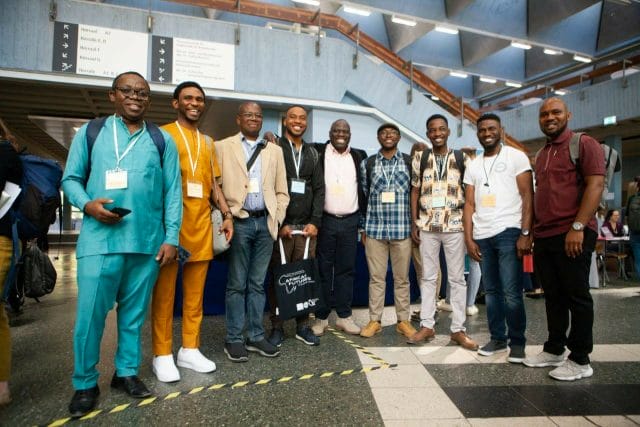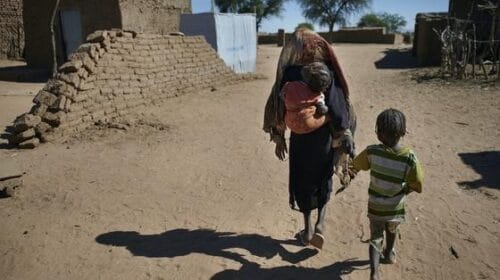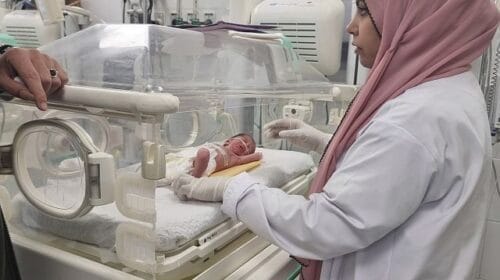ECAS: Something is Wrong with African Studies
By Leo Igwe
Something is wrong with African studies, and there is a need to highlight and address this wrong. There is a need to begin this conversation. I have been attending African studies conferences to see if I could change or rethink this impression. But the idea persists. Something strikes me as missing or mistaken in African studies as we know it today. The situation seems not to be significantly changing. I was at this year’s European Conference on African Studies(ECAS) held in Cologne Germany from May 31 to June 3. The Global South Studies Center (University of Cologne) and the IARA, Institute for Anthropological Research on Africa, University of Leuven organized the event. I co-organized a panel on transhumanism and Africa with Chogwu Abdul of the Kogi State University in Nigeria and Prof Stefan Sorgner of the Cabot University in Rome. My presentation focused on Emerging Technologies, Leap Frog Development, and African Futures. The conference brought together many scholars, researchers, and policymakers. For four days, we met, discussed, and exchanged ideas on issues of African importance. In addition to participating in a panel session, I attended a few other sessions and interacted with African and non-African attendees in between the sessions.
With the theme, African Futures, I had high hopes, and expectations. I have always wanted to attend an African studies conference that is forward-looking. I have longed to participate in an event that radically departs from this single‐storic version that is often the case. Presentations at African studies seminars, especially in the field of witchcraft tend to valourize the past; they are seldom futuristic and portray modernity as negatively disruptive and destabilizing of ‘premodern’ socio political equilibrium. I have always wondered how scholars came about and have continued to make sense of this analytical trajectory.
I was glad to participate in an academic event on Africa that thematically tried to envision African future(s) and possibilities. I looked forward to attending this conference in Cologne, an event that I thought could depart from the African Studies conference as I knew it. So I came to the conference poised to listen to inspiring, and intellectually stimulating exchanges. I enjoy listening to well articulated cutting edge ideas, no matter the discipline, as long as they are well explained. And where else could one go to in search of such ideas about Africa but an African studies conference?
Too often, discourses on Africa are characteristically bland, and mired in stereotypes, conflations and generalizations. I can recall an incident that happened many years ago. I travelled with a German colleague for some field work. While in Ghana, he told that going by what he read about witchcraft in Africa, he expected, on arrival, to see witchcraft everywhere! I laughed hilariously. Africa is presented and painted as a ossified, hopeless, one dimensional and unchanging object of analysis, or better entertainment. Presentations on and about Africa are mainly exotic. In many ways, they resonate with some primitive, childish, and backward thinking couched in conceptual euphemisms. Even as an African, I am often at a loss, and unable to connect with some of these explanations. I struggle to decipher, understand, relate to, or appreciate what many Africanists frame and explain as African at conferences and seminars. It is as if they make them up or they were not there! On many occasions I have asked: Which Africa is this person talking about? What is African about this issue? What is African about what scholars explain as African?
Ideas such as ‘modern’, ‘science’, ‘technology’, ‘philosophy’, development, and ‘progress’ are explained to mean different things. It is as if the only way to explain Africa or anything African is by valorizing Africa’s largely made up past, exoticizing African life situation and romanticizing its supposed ancients and primitives. I attended sessions where anthropologists struggled to explain ‘African technologies’ and other than ‘Western’ ways to purify water, control erosions, or secure communities. Some of the explanations were mentally tasking to listen to. They sounded absurd, bland, and uninspiring, (I guess) even to the persons making the presentations.
But as usual, participants put up this serious face, as if the presenters were making sense or outlining important and never‐heard‐before points and insights. They applauded, nodded or gazed in ways that could easily be mistaken to be a demonstration, yes, an acknowledgment of rare ingenuity. On many occasions, whites or non-Africans avoided saying anything overtly critical of Africa, probably in order not to be accused of racism or neocolonialism. Whilst African scholars analytically bent back over to present their data as ‘Africans’, and try to fit into this paradigm of studying and explaining Africa. They try to play this positionality game of speaking with some academic distance, while attached, or speaking as an outsider while an insider.
So I traveled to Cologne to see if things have changed. I went to hear groundbreaking presentations talks, insights, and thoughtful propositions about Africa and its futures. I came to the event to engage in debates and a clash of ideas that could occasion a rethink and a re-imagine of Africa going forward. I went from session to session to see if I could stumble on some presentation or activity that could lift my spirit and stimulate my mind. But it was largely the same old story.
Nothing testified to this experience better than what I saw on the penultimate day of the event. I came out of the registration hall and saw this young man, I guess, a traditional priest, sitting on the ground and entertaining mainly white European conference participants. I said, ahhh there they go. He was making some gestures and incantations, invoking the African gods and spirits in Europe. He was twisting his body as if he was convulsing, apparently conducting some rituals with clay pots, calabash, red cloths and other ‘sacred’ objects. I took a glance at the scene and left. But I kept wondering since then. Why this display and not others? Why were there no displays on science, technology, and African futures? I mean, science and technology as we know it. Why were there no exhibitions on emerging technologies, on cutting-edge science, solar energy, heart surgeries, robotics, space expeditions? Why were there no computer or IT shows? Will these accessories not be a part of African futures?
Instead we were treated to ‘voodoo’ religious display, that many Africans could not relate to. Look I am not against a display of African traditional religion and beliefs. Such a demonstration was in order But I have issues with this ‘traditionalist’ impression of Africa that is a staple of African studies in the west.
For all that I know, that scene was not a surprise. It fitted into the fixed image of Africa in Europe, and the west. Yes, that scene epitomized what is, was, and has been wrong with African studies, and African studies conferences. That display typified the persistent western stereotypic impression of African pasts, presents, and futures. It encapsulated what was wrong with African studies that African scholars should interrogate, challenge and disrupt.
Leo Igwe holds a doctoral degree in religious studies from the Bayreuth International Graduate School of African Studies, University of Bayreuth, Germany.



